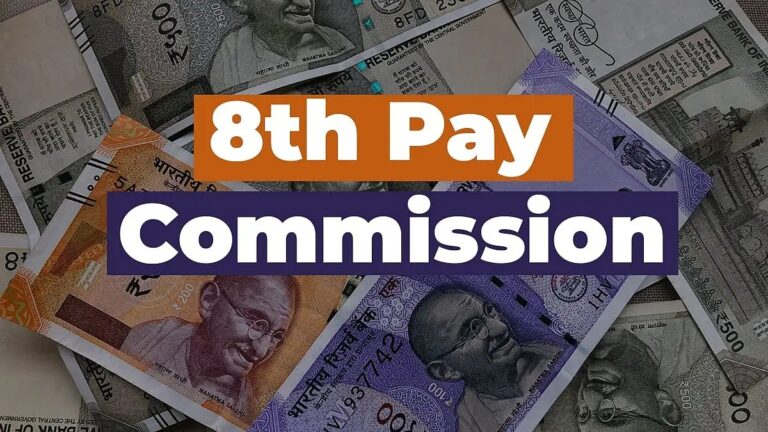
The 8th Pay Commission and Pension Reform
The 8th Pay Commission is poised to deliver transformative changes for millions of central government employees and pensioners, marking a pivotal moment in India’s public sector welfare framework. Central to this reform is the potential restructuring of pension commutation rules, a long-standing demand from employee unions. Currently, pensioners opting for a lump sum payment under commuted pension face a 15-year recovery period, during which the government deducts a portion of their monthly pension. This policy has drawn criticism for its economic inequity, particularly in light of fluctuating interest rates and inflationary pressures. The National Council, representing central government employees, has formally urged the Cabinet Secretary to expedite the reduction of this recovery period to 12 years. If implemented, this adjustment could provide immediate financial relief to retirees, enabling them to access full pension benefits sooner. The commission’s upcoming recommendations, expected to be finalized in 2024, may redefine the financial landscape for over 10 million government workers, balancing fiscal responsibility with employee welfare.
Understanding Commuted Pension
Commuted pension is a critical component of India’s retirement benefits system, allowing employees to convert a portion of their pension into a lump sum payment. This option provides financial flexibility, particularly for those with urgent personal or medical needs. However, the process involves a trade-off: the government recovers the lump sum over a specified period by reducing the monthly pension amount. The current 15-year recovery term has sparked debates about its fairness, as retirees often face significant financial strain during this period. Critics argue that the 15-year timeline is outdated and fails to account for modern economic realities, such as lower interest rates and extended life expectancy. Proponents of reducing the term to 12 years emphasize that this change would align pension policies with contemporary financial planning, ensuring retirees can manage their savings more effectively. The debate underscores the tension between fiscal prudence and the need to support retired employees in an increasingly complex economic environment.
Employee Unions and the Demand for Reform
Employee unions have been at the forefront of advocating for pension commutation reforms, highlighting the economic disparities exacerbated by the 15-year recovery period. They argue that the current system disproportionately affects retirees, particularly those with limited savings or health challenges. The National Council’s recent submission to the Cabinet Secretary underscores the urgency of this issue, emphasizing that a 12-year recovery term would restore financial equity. Union leaders also point to the impact of low interest rates, which have reduced the government’s ability to recover funds efficiently, further straining retirees’ incomes. By shortening the recovery period, the 8th Pay Commission could address these inequities while fostering greater trust between the government and its workforce. The proposed changes may also encourage more employees to opt for commuted pensions, as the financial burden would be lessened, potentially improving overall pension fund sustainability.
Policy Implications and Broader Impact
The potential reduction of the pension commutation period from 15 to 12 years carries far-reaching implications for both retirees and the government. For pensioners, this change could mean immediate financial relief, enabling them to manage their savings more effectively and reduce reliance on monthly pension payments. However, the government must carefully balance this reform with fiscal considerations, ensuring that the adjustment does not compromise the long-term sustainability of pension funds. The 8th Pay Commission’s recommendations may also set a precedent for state governments, encouraging similar reforms across the country. Additionally, the policy shift could influence the broader retirement benefits framework, prompting discussions on other aspects of pension planning, such as inflation adjustments and healthcare provisions. As the commission finalizes its recommendations, the focus will remain on creating a system that supports retirees while maintaining fiscal responsibility.
Looking Ahead: A New Era for Pension Policies
The 8th Pay Commission’s proposed reforms represent a significant step toward modernizing India’s pension system. By addressing the longstanding issue of pension commutation, the government can enhance the financial security of millions of retirees while ensuring the sustainability of pension funds. The reduction of the recovery period to 12 years would not only provide immediate relief but also align the policy with contemporary economic realities. As the commission prepares to unveil its recommendations, the focus will be on balancing the needs of retirees with the broader fiscal landscape. The success of this reform will depend on its implementation, including whether it is applied retroactively to benefit current and past pensioners. Ultimately, this change could redefine the future of pension policies in India, setting a new standard for employee welfare and financial equity.



